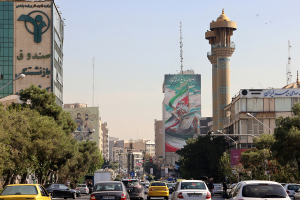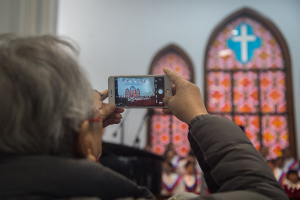Why Can't the Philippine Army Defeat ISIS-Linked Rebels?
Trepidation marked the faces of weary soldiers returning to base from fighting Islamic militants in Southern Philippines. The steel plates of the armored personnel carriers (APC) that shielded them have been deformed by rocket-propelled grenades (RPG). Things didn't look good for the army's campaign to rid the city of the radicals.
Two weeks after President Rodrigo Duterte declared Martial Law in the island of Mindanao, bombings continue in the small city of Marawi where jihadis of a local affiliate of the Islamic State (ISIS) are holed up. The situation is similar to Mosul in Iraq where a small band of ISIS fighters fends off the superior might of coalition forces.
The APC operator said the rebels were adept in urban warfare, with RPG-armed men and snipers positioned on top of houses who quickly hide at the sign of an airstrike. What confounded him was that the enemies seem to be growing in number. The Army has conceded that it couldn't meet its self-imposed June 2 deadline to completely take over Marawi.
The ISIS-affiliate Maute group was a ragtag rebel force made of 30–40 members. But its numbers swelled after it took over a jailhouse and freed the inmates, many of them members of the group. Its ranks also got a boost by the alliance it forged with the Al Qaeda-allied Abu Sayyaf.
Another thing that struck soldiers was that the enemy was well-armed. Military spokesman Brig. Gen. Restituto Padilla explained that the weapons were looted from the jail facility it overran and from the police combat vehicles it ambushed. He also doesn't discount the possibility that the ammunitions were sourced from the black market and from unscrupulous military personnel.
The Maute group also gets financial support from abroad, according to Sidney Jones who runs the Institute for Policy Analysis of Conflict in Jakarta. She fears that when the time comes that ISIS totally releases Mosul and Raqqa, its next target for convergence would be in Mindanao.



























